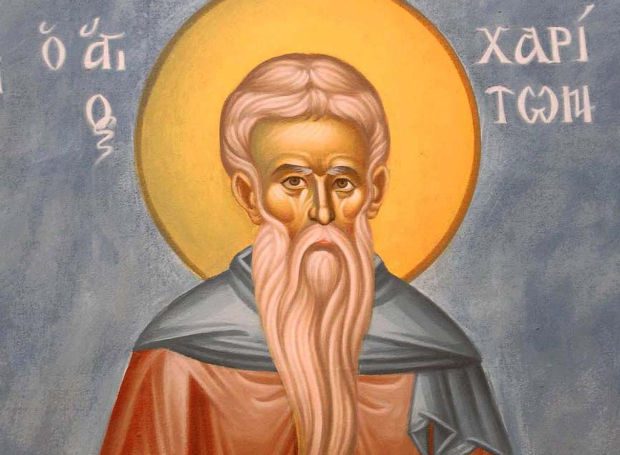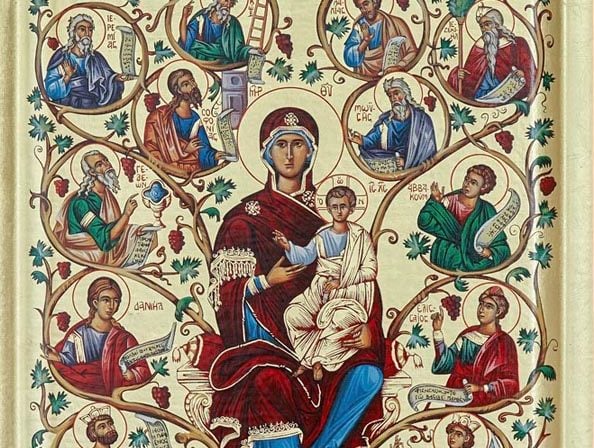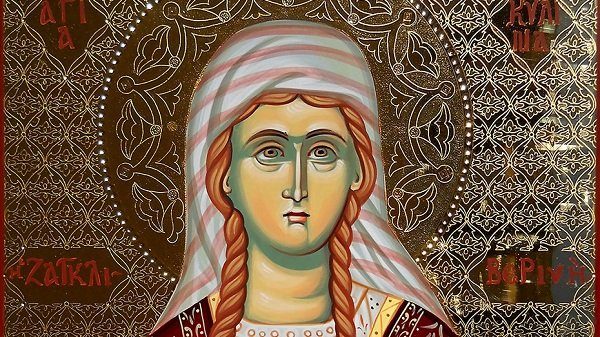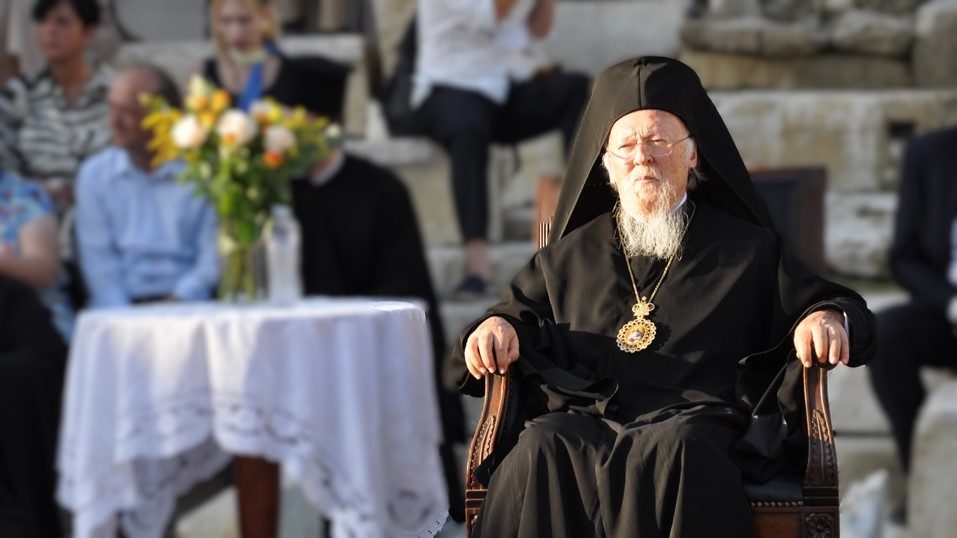Venerable Chariton the Confessor, Abbot of Palestine (28 September)


Saint Chariton the Confessor was born at Iconium in the province of Lycaonia, and suffered there during a persecution against Christians in the reign of Emperor Aurelian (270-275). The example of the holy Protomartyr Thekla (September 24), who was also a native of his city, encouraged him to confess Christ, since he had a great devotion to her.
Saint Chariton bravely denounced the pagan gods and staunchly confessed faith in the one True God, Christ the Savior. The holy Confessor underwent fierce tortures but, by God’s Providence, he survived. The persecution ended after Aurelian’s death in 275. Saint Chariton was among the many Christians who were released from prison, and he resolved to dedicate his entire life to the service of the Lord. Although he escaped death, he grieved because he had not received the crown of martyrdom.
After arriving at Jerusalem on a pilgrimage to the holy places, he fell into the hands of thieves. They tied him up and threw him in a cave, intending to kill him later. After they left to find people to rob, the saint prayed fervently to God expecting to be put to death. He did not ask God to deliver him, but instead he entreated Him to do with him as He wished.
At this time a snake crawled into the cave and began to drink wine from a vessel setting there. Later it vomited forth its deadly venom, poisoning the wine. When they returned to the cave, the evil men drank the poisoned wine and they all perished. Thus, their wicked lives came to a fitting end. Saint Chariton gave thanks to God, and then he gave away the gold which the malefactors had stolen, distributing it to the poor, to churches, and to monasteries. He began his ascetic struggles in the place of his miraculous rescue, and there he built a church. In time a monastery was established: the renowned Pharan Lavra in Palestine. Saint Chariton’s fame drew many disciples to him. He governed them with paternal affection, and he elevated them to the highest degrees of virtue.
Saint Chariton compiled a strict Rule for his monastery. Yearning for solitude, the monk withdrew farther into the desert in order to avoid the praise of men, but he never rejected anyone who sought his spiritual guidance. He founded two more monasteries: the Jericho (called the Monastery of Saint Chariton) and the Souka, which was called “the old Lavra.” He also brought many Jews and pagans to the Faith.
At the end of his life, Saint Chariton struggled in a cave atop a hill near the Souka monastery, but he did not cease to provide guidance for all three of the monasteries which he founded. He fell asleep in the Lord peacefully and at an advanced age on September 28, 350.
According to Tradition, Saint Chariton compiled the Office of the Monastic Tonsure. Saint Chariton was buried at the Pharan monastery, in accordance with his last wishes. His grace-filled relics were enshrined in the church that had been built on the site of the robbers’ cave.
Saint Chariton was born in the city of Iconium during the reign of Aurelian, about the year 274. He was arrested, tortured, and condemned to death because of his Christian Faith, but finally set free by imperial edict. He came to Palestine, where he took up the ascetic life. He also brought many Jews and pagans to the Faith. Having dwelt in the desert of Judea for many years, and established several monasteries throughout the region, he reposed in peace.
Chariton was a distinguished and devout citizen of the city of Iconium. Imbued with the spirit of his compatriot, St. Thecla, Chariton openly confessed the name of Christ. When a bitter persecution of Christians began during the reign of Emperor Aurelian, Chariton was immediately brought to trial before the eparch. The judge ordered him to worship the gods, but Chariton replied: “All your gods are demons, and were cast from the heavens into the nethermost hell.” Chariton clearly proclaimed his faith in the One Living God, the Creator of all, and the Lord Jesus, the Savior of mankind.
The eparch ordered that he be tortured and beaten, until his whole body was like one great wound. When Aurelian’s evil deeds caught up with him and he died an evil death, Chariton was freed from torture and prison. He then set out for Jerusalem. On the way he was seized by robbers, but escaped from them by God’s providence. Chariton, not wanting to return to Iconium again, withdrew to the wilderness of Pharan, where he founded a monastery and gathered monks. He established a rule for the monastery and then, to avoid the praise of men, withdrew to another wilderness near Jericho.
There he founded another monastery called the Monastery of Chariton. Finally, he founded a third monastery, Souka, which the Greeks called the Old Lavra. Chariton died at a great old age, and took up his abode in the glory of his Lord on September 28, 350 A.D. His relics repose in his first monastery. The composition of the rite of monastic tonsure is attributed to St. Chariton.
Apolytikion of Chariton the Confessor
Plagal of the Fourth Tone
With the rivers of your tears, you have made the barren desert fertile. Through sighs of sorrow from deep within you, your labors have borne fruit a hundred-fold. By your miracles you have become a light, shining upon the world. O Chariton, our Holy Father, pray to Christ our God, to save our souls.
Kontakion of Chariton the Confessor
Second Tone
Delighting in abstinence, O godly-minded one, and reining in the desires of thy flesh, thou wast seen to be increasing in faith. And thou didst blossom forth like the tree of life in the midst of Eden, O all-blessed and most sacred Chariton.
Source: oca.org / goarch.org / westserbdio.org




